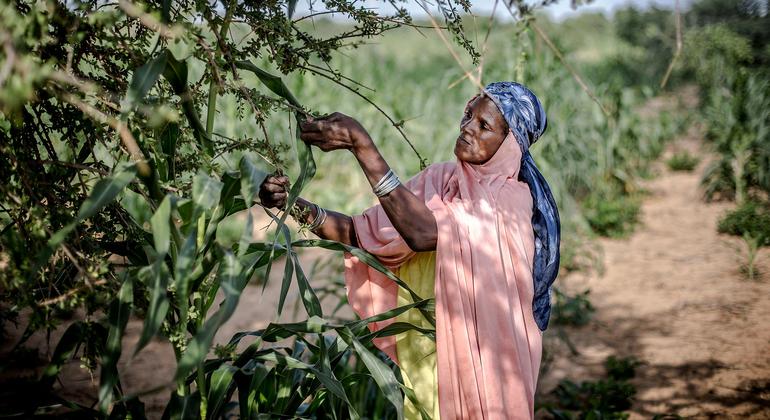That warning came from the UN World Health Organization (WHO) on Universal Health Coverage Day – observed on Tuesday – which said without urgent action, “these gaps will only widen”.
Health agency chief Tedros Adhanom Ghebreyesus stressed that investing in resilient health systems, based on strong primary healthcare, is “the most inclusive, equitable and cost-effective path towards universal health coverage”, defined as a situation where all people can access the health services they need, without financial hardship.
Health systems that can respond to shocks, such as the fast-advancing climate emergency, can avert millions of additional deaths each year, WHO insisted.
In a political declaration last September world leaders committed to redouble their efforts to achieve universal health coverage by 2030.
WHO said that it is working with countries to reorient health systems towards a primary healthcare approach “that can help deliver 90 per cent of essential health services while saving 60 million lives by 2030”.
Record hunger in West and Central Africa: UN humanitarians
Food insecurity has continued to worsen in West and Central Africa with the number of hungry people set to reach a “staggering 49.5 million” by the middle of next year, UN humanitarians said on Tuesday.
“Acute hunger remains at record levels in the region, yet funding needed to respond is not keeping a pace”, UN World Food Programme (WFP) regional director Margot Vandervelden said, stressing that for lack of funds WFP has been forced to scale back lifesaving assistance for those in need.
Acute hunger in West and Central Africa is mainly driven by conflict which has driven millions out of their homes and farms, along with the climate crisis and high food and fuel prices.
More than two in three households cannot afford healthy diets the cost of which in countries like Burkina Faso, Mali and Niger is 110 per cent higher than the daily minimum wage.
Four in five of the region’s youngest children do not consume the minimum number of food groups they need for optimal growth and development, WFP warned, together with the UN Children’s Fund (UNICEF) and the Food and Agriculture Organization (FAO).
In the first ten months of 2023, 1.9 million children under five were admitted for treatment due to severe wasting across nine Sahel countries, representing a 20 per cent increase from last year.
UNICEF launches $9.3 billion emergency funding appeal
In response to an alarming surge in humanitarian crises, the UN Children’s Fund (UNICEF) on Monday launched a $9.3 billion emergency funding appeal to reach at least 93.7 million children living in 155 countries.
Life-saving humanitarian aid will be essential in a world increasingly affected by brutal conflicts, poverty, polarization, and the effects of the climate crisis, the agency said in a press release.
UNICEF aims to reach approximately 147 million people overall with humanitarian assistance.
“Millions of children continue to be caught in humanitarian crises that are growing in complexity and scale, and that are increasingly stretching our resources to respond,” said UNICEF Executive Director Catherine Russell.
“With predictable flexible funding, UNICEF and partners can quickly support children in need from the moment an emergency strikes, while preparing for future risks to save and improve lives.”
The $9.3 billion appeal underscores the urgency of addressing the rise in multifaceted challenges faced by children, UNICEF said.
In conflict zones, children endure the harsh realities of violence and displacement, facing the daily threats of physical harm, emotional trauma, and the disruption of their education and essential services.
While children in areas affected by violence contend with the pervasive impact on their well-being, grappling with the psychological toll of instability, and the heightened risk of exploitation and abuse.
On Tuesday, the UN Population Fund, which champions sexual and reproductive health, launched a $1.2 billion humanitarian appeal to support 48 million people with reproductive health and gender-based violence services in 58 countries during next year.



